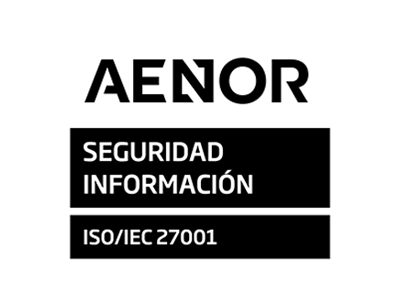Advancing Patient Safety through AI-Enhanced Health Literacy: Opportunities and Challenges
10th May 2024

Poor health literacy is compromising your patient outcomes.
Misunderstandings between healthcare providers and patients not only reduce treatment efficacy but also significantly increase the risk of serious medical errors.
Are you sure your patients truly understand their health conditions and the treatments you prescribe? How can we address this critical gap?
Health literacy is not just about your patients being able to read medical pamphlets; it’s about their capacity to understand and use health information to make decisions that enhance their safety and well-being.
We all know that patients can have a difficult time navigating the complex healthcare system with its maze of treatments and prescriptions—it can be daunting, right? This is where health literacy becomes pivotal. As healthcare professionals, it’s crucial to facilitate this understanding and guide them effectively through their healthcare journey.
In fact, the COVID-19 pandemic cast a spotlight on the crucial role of health literacy, empowering people to navigate the surge of online health information and make informed decisions about their healthcare. With patients facing a deluge of data, enhancing eHealth literacy has become a key factor in promoting health equity and improving outcomes in public health, cancer care, and beyond.
In today’s blog post, we’ll talk about AI’s role in advancing health literacy and bridging communication gaps, how applications can be applied to the real world, and what ethical considerations we need to keep in mind.
What is the impact of limited health literacy?
Let’s start by mentioning some of the impacts on patients who experience limited health literacy.
- Delayed Diagnoses: Without clear understanding, symptoms may be misunderstood or ignored, leading to late medical intervention.
- Management Challenges: Managing chronic conditions requires precise knowledge about medications and lifestyle adjustments, which can be hindered by poor health literacy.
- Increased Risk of Mortality: Yes, it’s serious! Inadequate health literacy can lead to life-threatening mistakes in medication and treatment adherence.
What is AI’s role in enhancing health literacy and patient safety
By integrating AI into health literacy efforts, the healthcare system can not only minimize human errors but also tailor health communication to meet individual patient needs, making safety a personalized and accessible priority.
How can we bridge communication gaps in healthcare with AI?
Bridging communication gaps in healthcare is essential for reducing medical errors and improving patient outcomes. Here are some effective strategies:
- Adopt Clear Communication Strategies: AI-driven language processing tools can help healthcare professionals tailor their language to match the patient’s comprehension level, ensuring clear and effective communication.
- Implement the “Teach-Back” Technique: AI can be used to analyze patient responses for accuracy and completeness, providing real-time feedback to healthcare providers about the effectiveness of their communication.
- Simplify Medical Documents: AI algorithms can automatically reword medical documents into simpler language, making them more accessible to patients without medical training.
- Utilize Multimedia Resources: AI can generate personalized videos and interactive guides based on a patient’s specific conditions and treatment plans, improving their understanding and engagement.
- Regular Training for Healthcare Professionals: AI-powered training modules can simulate patient interactions, offering healthcare providers practice and feedback in a controlled environment to improve their communication skills.
- Encourage Patient Feedback: AI systems can analyze patient feedback on communication effectiveness, identifying patterns and insights that might not be evident through manual methods, and suggesting specific improvements.
AI-Driven Innovations in Health Literacy
AI-Augmented Lifelong Learning and Tutoring Systems
- Integration of AI with Lifelong Learning: AI-augmented lifelong learning leverages advanced algorithms and machine learning to adapt and personalize eHealth education. By applying scientific insights into how people learn, AI creates dynamic learning experiences that evolve with the learner’s needs.
- Intelligent Tutoring Systems (ITS): AI-enabled ITS are interactive platforms that guide you through complex health information, ensuring you understand and retain knowledge effectively. These systems are tailored to individual learning paces and styles, enhancing the overall learning experience.
Enhancing Understanding Through Language and Text Simplification
- AI-Assisted Translation and Simplification: Utilizing NLP techniques, AI helps in translating health materials into multiple languages, making health literacy accessible to a diverse population. Text simplification processes ensure that health information is easy to read and understand.
- Content Filtering: AI-based technology evaluates and filters health information, ensuring that you receive accurate and reliable data. This is crucial in combating misinformation, especially during health crises like the COVID-19 pandemic.
Interactive AI Solutions for Improved Engagement
- Chatbots and Virtual Assistants: AI-driven chatbots provide real-time health advice and information, improving patient engagement and satisfaction. For instance, Mayo Clinic’s AI chatbot has shown significant improvements in patient interaction and health management.
- Personalized Health Analytics: AI analyzes your health data to offer personalized insights, predict health risks, and provide tailored health management strategies. This proactive approach in health literacy not only educates but also empowers you to take charge of your health.
Examples of Real-World Applications
Data Collection and Utilization
AI-driven healthcare relies heavily on comprehensive data collection and storage methods, including manual data entry and electronic health records (EHRs). Health Information Exchange (HIE) systems and cloud storage play pivotal roles in enhancing patient care, supporting research and innovation, and streamlining billing and insurance processes. These systems are crucial for quality improvement and bolstering public health initiatives.
Third-Party Collaboration
Third-party vendors are integral to AI-based healthcare solutions, handling tasks from AI development and integration to data security and compliance. Their responsibilities also extend to monitoring system performance and maintaining data security, alongside fostering research collaborations that push the boundaries of medical science and healthcare services.
How can challenges and ethical considerations be tackled?
Navigating the complexities of AI in healthcare brings about a unique set of challenges and ethical considerations that require vigilant attention and proactive management.
Let’s take a look at some of these critical issues and explore potential pathways forward:
Bias and Ensuring Fairness
- Proactive Bias Mitigation: Addressing bias in healthcare data is essential to prevent AI-driven inequities. This involves rigorous testing and refining of algorithms to ensure fair and unbiased outcomes.
- Diverse Data and Inclusive AI Development: Promoting diversity in AI research and the workforce helps to mitigate bias and enhance the representativeness of AI applications.
Ethical AI Deployment
- Transparent AI Operations: Implementing Explainable AI (XAI) practices helps demystify AI decisions for users, promoting transparency and trust.
- Balanced Responsibility: Determining accountability in AI-driven outcomes is crucial. This involves clear guidelines on the roles and responsibilities of AI developers and healthcare providers.
Regulatory Compliance and Patient Rights
- Adherence to Regulations: Ensuring compliance with standards such as HIPAA, GDPR, and others is non-negotiable for maintaining patient trust and legal integrity.
- Informed Consent and Patient Engagement: Patients must be thoroughly informed about how their data is used in AI applications and must have the option to opt-out if they choose.
By addressing these challenges head-on and fostering an environment of ethical responsibility and regulatory compliance, the future of AI in healthcare looks promising. With the right balance of innovation and oversight, AI can significantly enhance health literacy and patient safety without compromising ethical standards or patient privacy.
How can we ensure patient data privacy?
The integration of AI in healthcare raises significant concerns regarding patient data privacy. To mitigate these risks, healthcare providers must implement rigorous protocols:
- Data Security Measures: This includes strong data security contracts, data minimization, and robust data encryption protocols to protect sensitive information.
- Access Controls: Limiting access to patient data and employing de-identification and anonymization techniques ensure that patient confidentiality is maintained.
- Compliance and Monitoring: Regular vulnerability testing, compliance with stringent regulations, and secure data storage are mandatory to safeguard patient information.
- Education and Training: Developing comprehensive training and awareness programs for all healthcare personnel involved in data handling is essential to prevent data breaches.
- Incident Management: Establishing a robust incident response plan prepares healthcare providers to act swiftly and effectively in case of data security breaches.
- Homomorphic Encryption and Secure Multiparty Computation: These technologies are at the forefront of ensuring data privacy, allowing data to be processed in an encrypted form, thus safeguarding sensitive information from unauthorized access.
- Robust Cybersecurity Measures: With AI’s complexity, it’s crucial to fortify systems against potential breaches, ensuring that patient data is shielded from cyber threats.
Final Takeaways
AI is proving to have a transformative role in enhancing health literacy and patient safety. This step forward for healthcare comes with both vast opportunities and significant challenges that will need to be addressed continuously. From improving communication between healthcare providers and patients to predicting and managing health risks more effectively. AI stands as a beacon of progress, promising a future where healthcare is not only more accessible but also more personalized. Nevertheless, the success of these advancements hinges on our ability to navigate the ethical, privacy, and data integrity concerns that are inherent in the integration of AI into healthcare systems.
Moving forward, the collective effort of technologists, clinicians, ethicists, and policymakers will be crucial in addressing the challenges and capitalizing on the opportunities AI presents. Ultimately, this will pave the way for a healthcare system that is more efficient, inclusive, and equipped to meet the needs of all patients.
Find out how our Virtual Agent can support the advancement of health literacy.
Don’t miss out on our weekly blog posts and LinkedIn updates about the fascinating advancements that will propel your business.
Ready to see what we can do for you?
In the right hands, artificial intelligence can take human performance to a hitherto unimaginable level. Are you ready for evolution?




